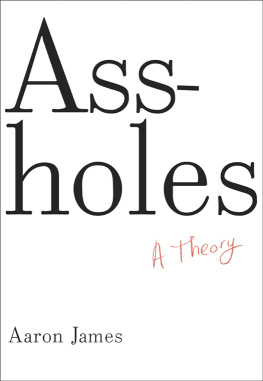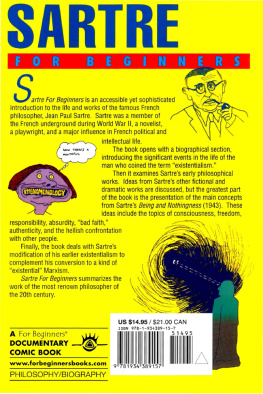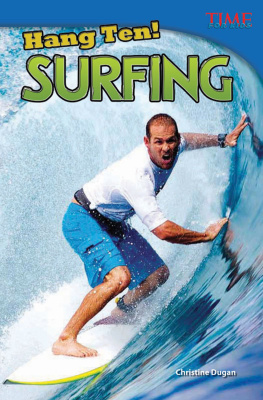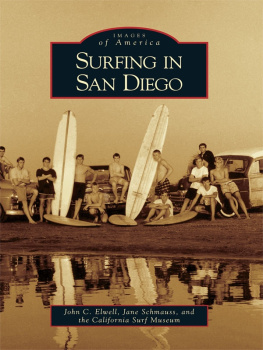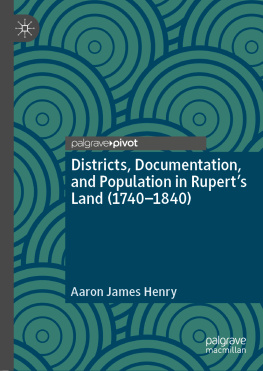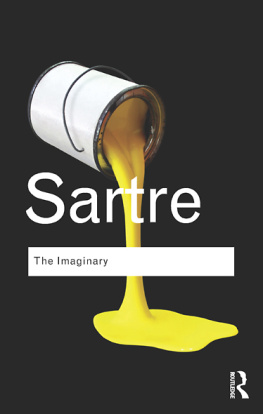Aaron James - Surfing with Sartre: An Aquatic Inquiry into a Life
Here you can read online Aaron James - Surfing with Sartre: An Aquatic Inquiry into a Life full text of the book (entire story) in english for free. Download pdf and epub, get meaning, cover and reviews about this ebook. year: 2017, publisher: Knopf Doubleday Publishing Group, genre: Religion. Description of the work, (preface) as well as reviews are available. Best literature library LitArk.com created for fans of good reading and offers a wide selection of genres:
Romance novel
Science fiction
Adventure
Detective
Science
History
Home and family
Prose
Art
Politics
Computer
Non-fiction
Religion
Business
Children
Humor
Choose a favorite category and find really read worthwhile books. Enjoy immersion in the world of imagination, feel the emotions of the characters or learn something new for yourself, make an fascinating discovery.

- Book:Surfing with Sartre: An Aquatic Inquiry into a Life
- Author:
- Publisher:Knopf Doubleday Publishing Group
- Genre:
- Year:2017
- Rating:5 / 5
- Favourites:Add to favourites
- Your mark:
- 100
- 1
- 2
- 3
- 4
- 5
Surfing with Sartre: An Aquatic Inquiry into a Life: summary, description and annotation
We offer to read an annotation, description, summary or preface (depends on what the author of the book "Surfing with Sartre: An Aquatic Inquiry into a Life" wrote himself). If you haven't found the necessary information about the book — write in the comments, we will try to find it.
Surfing with Sartre: An Aquatic Inquiry into a Life — read online for free the complete book (whole text) full work
Below is the text of the book, divided by pages. System saving the place of the last page read, allows you to conveniently read the book "Surfing with Sartre: An Aquatic Inquiry into a Life" online for free, without having to search again every time where you left off. Put a bookmark, and you can go to the page where you finished reading at any time.
Font size:
Interval:
Bookmark:
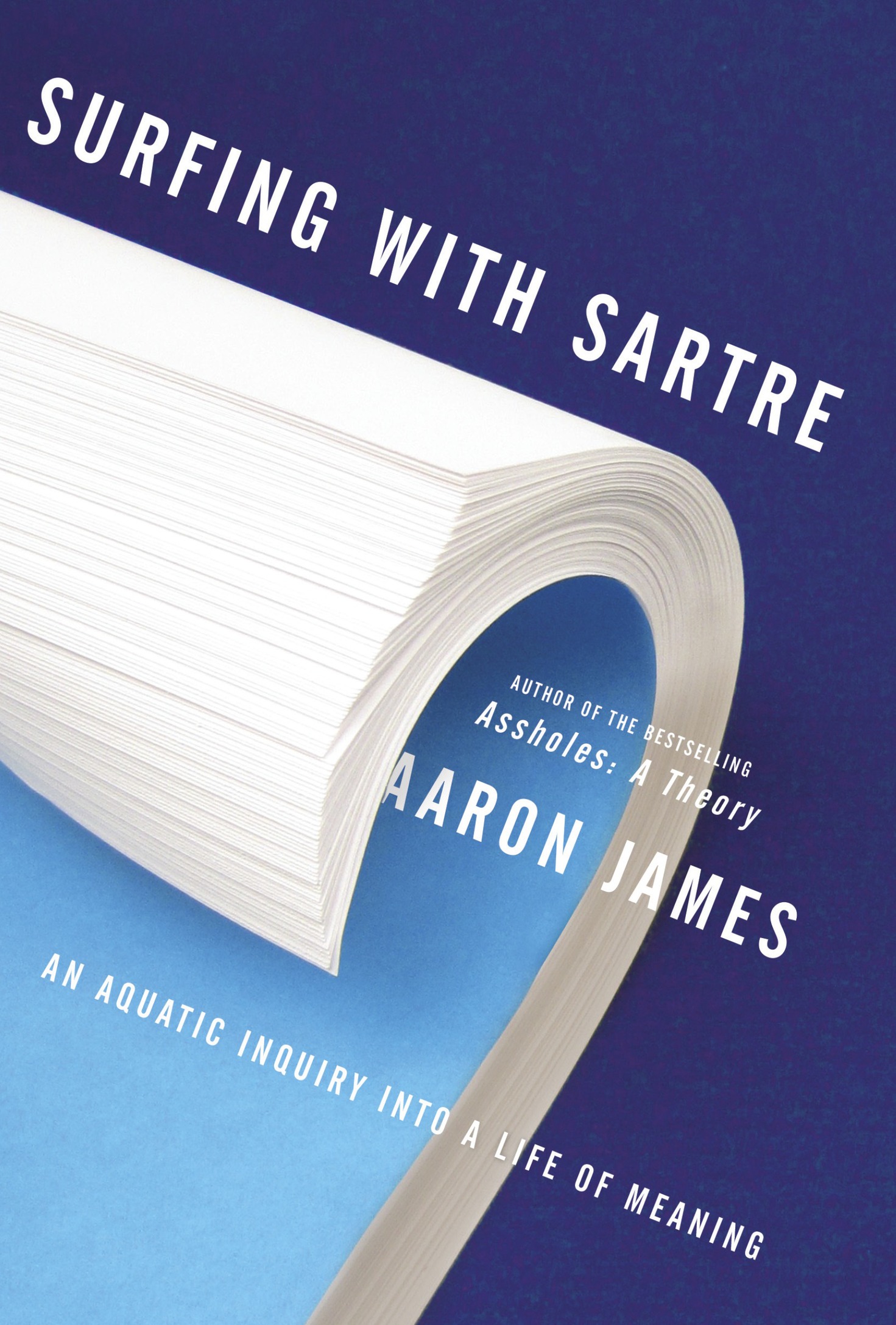
Fairness in Practice: A Social Contract for a Global Economy
Assholes: A Theory
Assholes: A Theory of Donald Trump
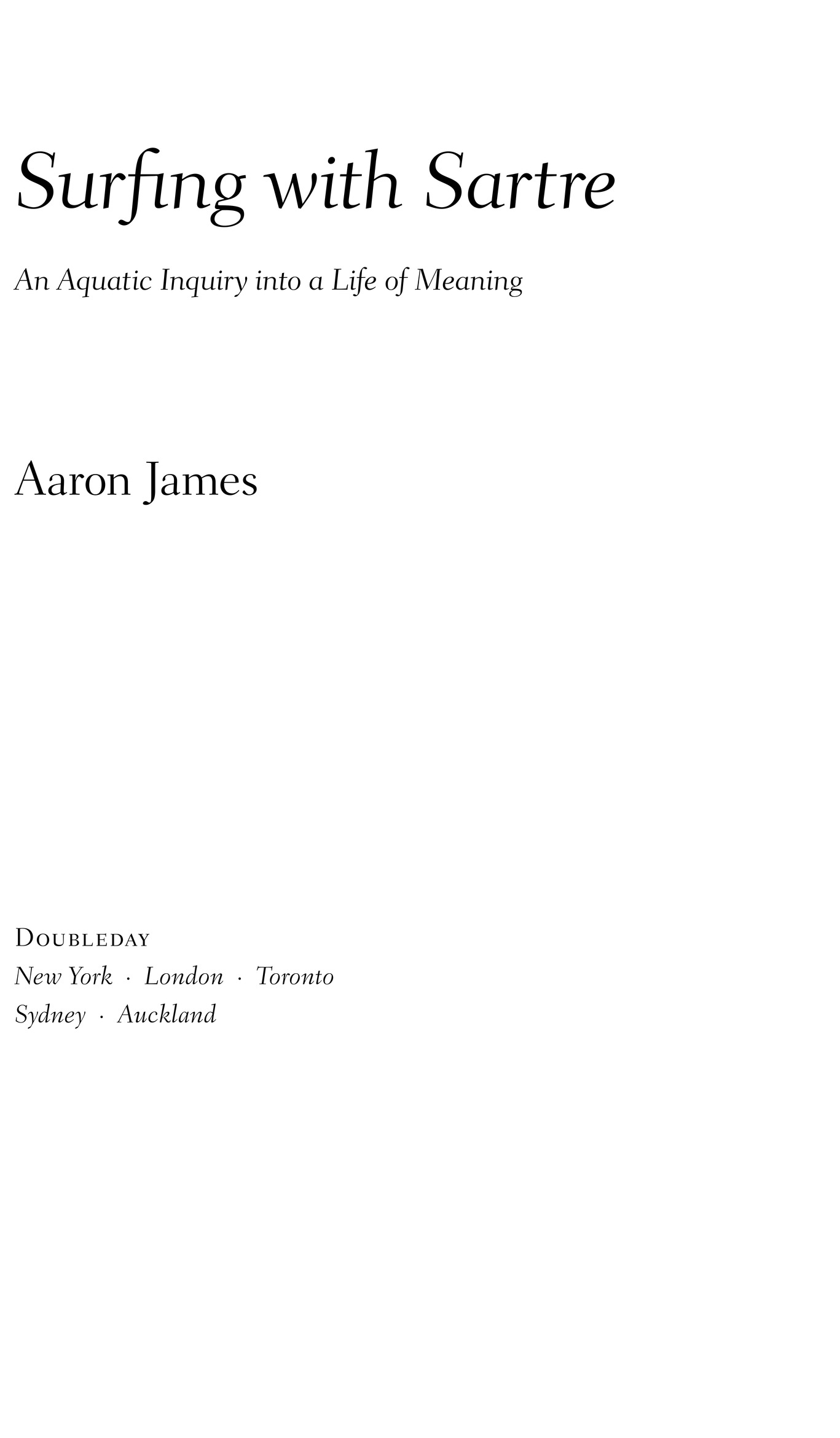

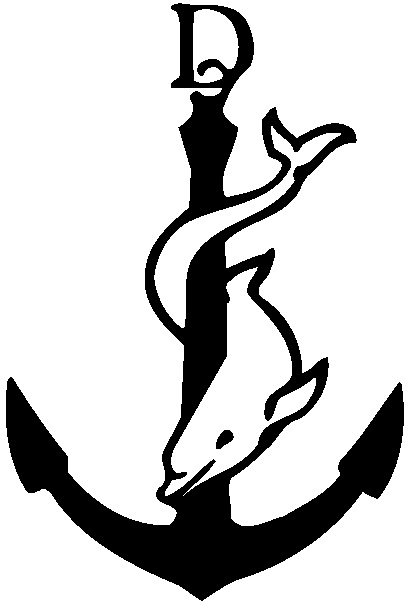

Copyright 2017 by Aaron James
All rights reserved. Published in the United States by Doubleday, a division of Penguin Random House LLC, New York, and distributed in Canada by Random House of Canada, a division of Penguin Random House Canada Limited, Toronto.
www.doubleday.com
DOUBLEDAY and the portrayal of an anchor with a dolphin are registered trademarks of Penguin Random House LLC.
Cover photograph and design by Emily Mahon
Library of Congress Cataloging-in-Publication Data
Names: James, Aaron (Aaron J.), author.
Title: Surfing with Sartre : an aquatic inquiry into a life of meaning / Aaron James.
Description: First Edition. | New York : Doubleday Books, 2017.
Identifiers: LCCN 2017000670 (print) | LCCN 2017021274 (ebook) | ISBN 9780385540735 (hardcover) | ISBN 9780385540742 (ebook)
Subjects: LCSH: Philosophy, American. | Surfing. | SportsPhilosophy. | Sartre, Jean-Paul, 19051980.
Classification: LCC B936 (ebook) | LCC B936 .J36 2017 (print) | DDC 201/.679732dc23
LC record available at https://lccn.loc.gov/2017000670
Ebook ISBN9780385540742
v4.1
ep
For Tim, who believed in a surfer
To ski means not only to enable me to make rapid movements and to acquire a technical skill, nor is it merely to play.I am changing the matter and meaning of the snow.
J EAN- P AUL S ARTRE
By considering the body in movement, we can see better how it inhabits space (and, moreover, time) because movement is not limited to submitting passively to space and time, it actively assumes them, it takes them up in their basic significance which is obscured in the commonplaceness of established situations.
M AURICE M ERLEAU- P ONTY
Catch a wave and youre sitting on top of the world.
B RIAN W ILSON AND M IKE L OVE
N OT SO LONG AGO, in the dark days before the forty-hour workweek, the average person worked constantly, without time to completely rest, let alone laze around, get creative, and maybe take up surfing. Fortunately, history brought something of a revolution. By the early 1940s, the labor movement had won limited workdays, weekends off, and periodic vacations for most workers. The postwar economy boomed. And many people hit the beach in this new leisure culture, finding new forms of meaning. Nowadays, in our more leisurely style of capitalism, the workaday surfer can be found at surf breaks the world over, stoked in gushing exuberance about the better waves of the day, feeling lighter about the stresses of work, acting as if the whole meaning of human existence can be found in the simple act of riding a wave.
And I mean, like, super stoked, at least in the peak moments. As in effusive, bursting forth in hoots and howls. As in feeling like things are easy. Fine. Golden. As though you can just relax and eat some nice tacos. As in you were worried about some things, but what were they again? Maybe the surfer gushes with profoundly vague slogans. Only a surfer knows the feeling; Problems just wash off in the water; Its all connected; You just have to tap into something bigger, you know what Im saying? And maybe the honest answer is Actually, what are you saying? But, you know, whatever, because who cares? Cant the vague slogans just express the easy moment, without stating carefully defined truths? Surely complete thoughts arent always necessary, if only because the world can never be mastered in language, even in the most precisely chosen words. When youre stoked about the waves on which everything totally came together, or when you got a serious, proper tube, and you rode inside the tube of the wave for what felt like ages, you dont need to get control of anything. Youre stoked precisely because nothing else has to happen. Because nothing has to change. Because you can just be. Because right there at 3:15 p.m. on a Monday after a good surf session in Southern California, standing by the taco truck, under a fortunate sun, you are being.
Surfers arent ungrateful slackersat least not in any greater proportion than the general population. Most surfers work. They show up to work even when the waves are cracking, moved by that pained sense of duty that comes in acting contrary to the strong inclination to go surfing. The workaholic shows up to work eagerly, with a zeal for money and self-promotion that requires no thought of duty. But then whose work has greater moral worth? The one who is solemnly moved by duty, or the one who does as he likes?
For Immanuel Kant, the Enlightenment philosopher and moral rigorist, the moral worth of an action springs from its motives, and the workaday surfer who shows up from dutymaybe solely from dutywould be especially praiseworthy for doing what he or she really isnt inclined to do. Yet the high-minded, ber-rationalist philosopher (one of the big philosophers of all time, alongside Plato and Aristotle of ancient Greece) probably isnt the surfers philosopher. Although Kant was apparently quite the party animal in his youth, he traveled little beyond his hometown of Knigsberg, Germany. It was said that you could set your watch by his daily walk, while he presumably worked in deep thought. The hardworking genius was skeptical about happiness and hyperintellectual about morality and made much of strict conformity to law, and for those reasons alone a surfer might look elsewhere for help in articulating what is distinctively good about the surfer life.
Not that work these days is so terrible in itself. Most people can find some sort of meaning in a job taken to pay the bills. The time can fly while you get into a flow state (of which more later) while arguing about the new kitchen area policy, plowing through e-mails, or restocking a grocery store shelf. But most of us cant constantly pay close attention, especially not when the job turns mundane. The mind wanders, often to what one is missing. And so the surfer can often be found awash in daydreams of glorious wave-riding moments, at the keyboard, cash register, or roller brush, going through the motions, not quite into work with his or her whole being.
I once worked as a window cleaner for various restaurants. This paid mainly in flexibility, so that I could surf when the waves turned on. There was also joy in efficiently whipping the squeegee over the glass panes, without a drop left behind, and then, a moment later, opening the door for a customer with a pleasant greeting. The groove of fluid performance was intrinsically pleasingnot to mention time efficient, which put me on the road to surfing more speedily. Yet on the days when the wind would clock offshore, grooming the wave faces gently, with a solid six-foot ground swell running, when all I could think about was how
Font size:
Interval:
Bookmark:
Similar books «Surfing with Sartre: An Aquatic Inquiry into a Life»
Look at similar books to Surfing with Sartre: An Aquatic Inquiry into a Life. We have selected literature similar in name and meaning in the hope of providing readers with more options to find new, interesting, not yet read works.
Discussion, reviews of the book Surfing with Sartre: An Aquatic Inquiry into a Life and just readers' own opinions. Leave your comments, write what you think about the work, its meaning or the main characters. Specify what exactly you liked and what you didn't like, and why you think so.

